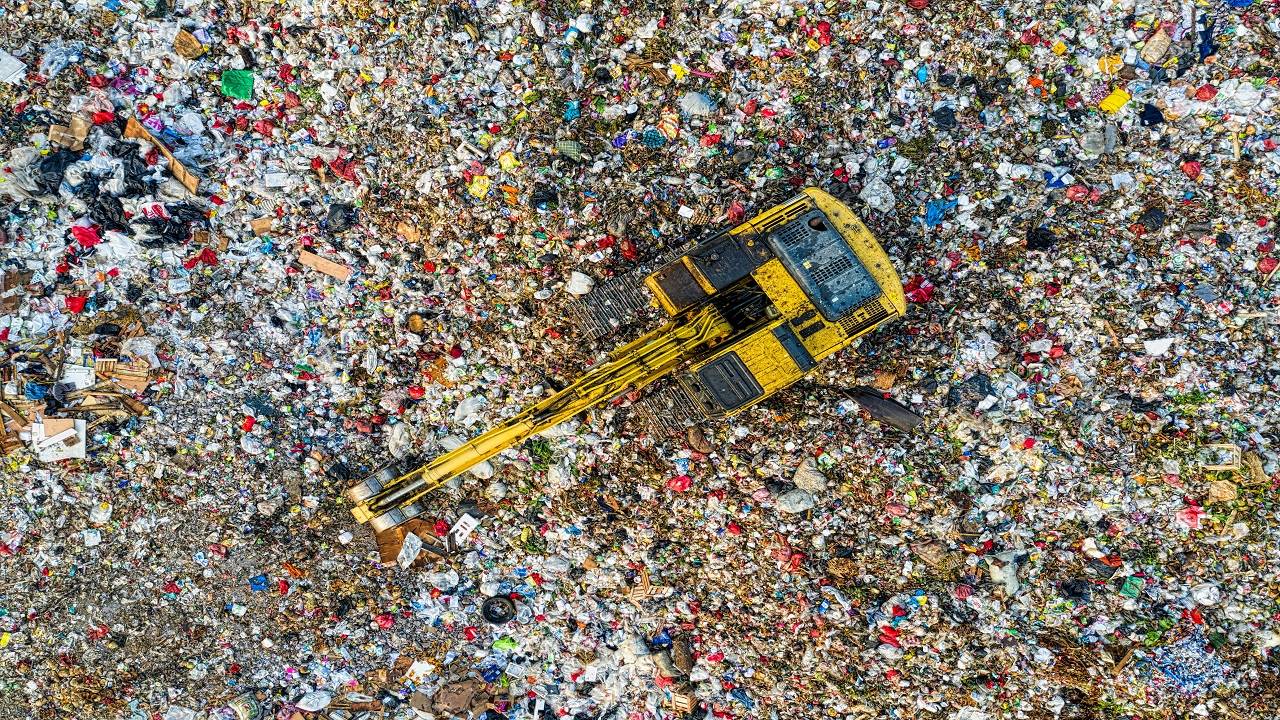
Indian Institute of Technology Guwahati researchers have developed a solution to deal with the repercussions of pathogenic waste left post Covid-19 pandemic. These researchers have studied how compacted natural clays can stop the spread of these viruses in the air. The study, published in the prestigious American Chemical Society journal, Langmuir, has been co-authored by Prof. Bharat Venkata Tadikonda, Prof. Sachin Kumar, and their research scholars, Mr. Himanshu Yadav and Mr. Shubham Gaurav.
How Is Waste Produced During Covid-19 Still A Threat to the World?
Biomedical waste (BMW) that contains viruses poses significant risks to human health, food safety, animal health, and the environment. The recent COVID-19 pandemic created an emergency and produced a huge quantity of potentially virulent waste from hospitals and isolation facilities. The Covid-19 waste was treated similarly to the municipal solid waste (MSW) during this pandemic and was disposed of in the existing MSW landfills. However, the geosynthetic landfill liners become ineffective in the presence of landfill leachate containing high-concentration salt solutions thereby the infectious viral pathogen waste can then easily escape from such facilities to potentially cause secondary infections in humans. Thus, highlighting the urgent need for proper management and safe disposal protocols.
Explaining the rationale of their research, Prof. T.V. Bharat, Dept. of Civil Engineering, IIT Guwahati, said, “We wanted to understand the fate of viruses in the presence of compacted clays like bentonite and kaolin that contain various surface charge densities. We measured specific parameters like the equilibrium sorption parameters, diffusion coefficient and retardation factor of the virus in the compacted clays for the first time. These measurements showed 99.6 % reduction of viral contamination and very low diffusion rates. Based on these findings, we were able to confirm that both bentonite and kaolin clays in powder form can prevent the viral contamination to enter into the environment. Our study for the first time provides experimental evidence of the efficiency of using compacted clays for containing viral waste”
To study the behavior of viruses in clays, the researchers used a safe virus called the Newcastle disease virus (NDV) as a substitute for the coronavirus. They conducted experiments where they mixed different amounts of the virus with bentonite and kaolin clays, allowing them to interact for varying durations. Also, through-diffusion tests are conducted with the viruses through compacted clays. The results demonstrated that both types of clays were highly effective in reducing the concentration of the virus in the source.
The research findings revealed that viral decay was quicker on bentonite compared to kaolin clay. It was observed that the removal efficiency of the NDV depended on the quality of bentonite, and multilayer sorption of the virus on clay surfaces.
In addition to addressing the disposal of pathogenic waste generated from the COVID-19 pandemic, this study also has implications for waste management during outbreaks of diseases like the Newcastle disease in poultry. The proposed handling protocol involves disposing of waste in biomedical waste facilities containing compacted powder Bentonite/Kaolin clays as liners or placing the pathogenic waste in a closed container with compacted powder bentonite or kaolin clays to dispose of in existing MSW landfills.
This work was supported by Science and Research Board (SERB), Department of Science and Technology, Government of India and was conducted under the research project entitled “Attenuation ability of Municipal solid waste landfill liners for Viral pathogens” (CRG/2021/000783).









